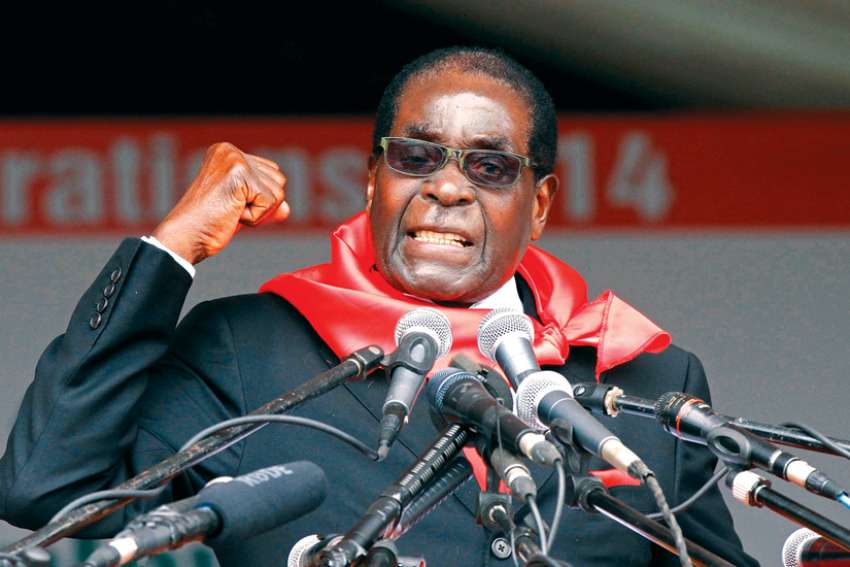Mugabe, 95, died Sept. 6 in Singapore, where he has often received medical treatment in recent years.
He was calculated and pragmatic, using the Church when it suited him, said Jesuit Fr. Oskar Wermter, noting that Mugabe appeared at Masses that would attract publicity and always expected to address the congregation.
Fr. Frederick Chiromba, secretary-general of the Zimbabwe Catholic Bishops’ Conference, said the news of Mugabe’s death “is met with much sadness.”
Mugabe “championed the liberation struggle” against white rule “and brought the country to independence,” he said in a Sept. 6 telephone interview from Zimbabwe’s capital, Harare.
In later years, “the former liberator came to be seen as an oppressor of the people,” he said. Mugabe was forced out in a de facto coup in November 2017.
Mugabe was born on Feb. 21, 1924, near Kutama, northeast of Zimbabwe’s capital Harare, in what was then Rhodesia.
Mugabe’s mother “was a strong Catholic who had been deserted by his carpenter father,” he said.
Contrary to frequent reports that Mugabe was Jesuit-educated, he was taught by French Canadian Marist Brothers, who ran the secondary school on the mission station.
When Mugabe had completed his training as a teacher, he taught at Catholic schools in Zimbabwe before leaving for Ghana, where he met his first wife, Sally Hayfron.
They were married in a Catholic church in Harare in 1961 and three years later Mugabe was imprisoned for 10 years by the Rhodesian government for opposing white rule.
Wermter said that part of the enormous bitterness that Mugabe is said to have carried throughout his life can be traced to the refusal of the Rhodesian authorities to allow him to leave the prison to go to Ghana to bury his three-year-old son, who had died of malaria.
After Mugabe’s release in 1974, a diocesan priest and a few Dominican nuns helped smuggle him across Zimbabwe’s eastern border into Mozambique, Wermter said.
From Mozambique, Mugabe led guerrilla forces in Zimbabwe’s protracted war for independence. He returned to Rhodesia in 1979 and, in 1980, won elections and became prime minister of the newly independent country, renamed Zimbabwe.
While in the early years of his rule Mugabe was praised for building schools and hospitals and expanding social services, at the same time he was leading a brutal crackdown on opposition supporters in the predominantly Ndebele regions of Zimbabwe.
A 1997 report — compiled from witness accounts by the Catholic Commission for Justice and Peace in Zimbabwe and the Legal Resources Foundation, a group of human rights lawyers — lists more than 7,000 cases of killings, torture and human rights abuses by Zimbabwe government troops in the western Matabeleland province from 1981 to 1987.
This report changed Mugabe’s relationship with the Church, which until then had been cordial, and he “started to call the bishops sanctimonious prelates,” Wermter said.


